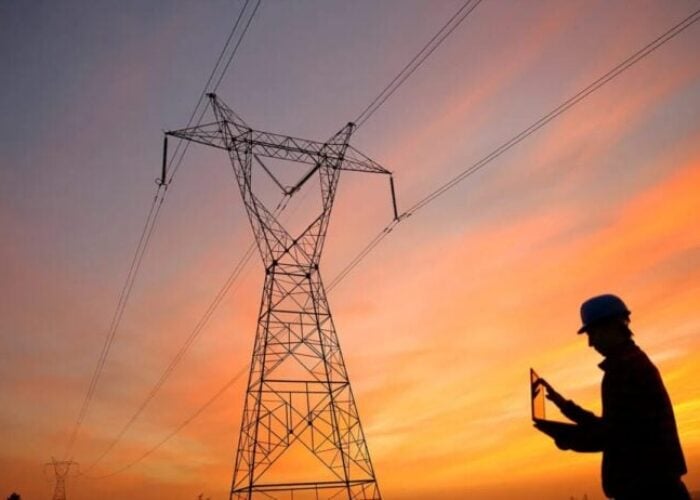As the US solar industry gathered for the 2014 Solar Power International show in Las Vegas this week, one cloud marring the otherwise blue Nevada sky was what will happen when the US government makes its final decision on what trade duties to slap on solar imports from China and Taiwan.
The threat of duties, outlined in preliminary anti-dumping and anti-subsidy announcements over the summer, has already prompted predictions that the buoyant US market could be dealt a serious blow just as it clicks into overdrive. With the Department of Commerce set to confirm final tariffs in December, there are concerns that supply of affordable modules from China could dry up, reversing the steadily declining costs of PV in recent years.
Unlock unlimited access for 12 whole months of distinctive global analysis
Photovoltaics International is now included.
- Regular insight and analysis of the industry’s biggest developments
- In-depth interviews with the industry’s leading figures
- Unlimited digital access to the PV Tech Power journal catalogue
- Unlimited digital access to the Photovoltaics International journal catalogue
- Access to more than 1,000 technical papers
- Discounts on Solar Media’s portfolio of events, in-person and virtual
If the threat of unintended consequences of a harsh reckoning for the Chinese and Taiwanese was hanging in the air at SPI, then one player seemingly oblivious to it was SolarWorld. The American arm of the German PV manufacturer has been behind the two recent trade actions against China, in 2012 and again this year, while its parent company in Germany was also the ringleader in last year’s parallel trade action in Europe.
Speaking to PV Tech on the show floor yesterday, Tim Brightbill, the company’s attorney, and Ben Santarris, its strategic affairs director, were in defiant mood, continuing in the same vein of vehement rhetoric that has characterised SolarWorld statements on its recent actions in China and Europe.
“There’s no reason why we can’t compete from the US market, and we shouldn’t be forced to compete with the Chinese government,” said Santarris. “That’s why the trade practices are improper. Not because Chinese manufacturers should not come in here and try to out-compete us or even under-price us, but because the government is backing the industry up and down the supply chain. And that’s direct interference of a foreign sovereign in our industry.”
For its role in the EU trade case last summer, and in the latest petition in the US this year, SolarWorld has attracted plenty of criticism. Although the company claims to have the support of the US solar industry, so too do both the Coalition for Affordable Solar Energy (CASE) headed by solar pioneer Jigar Shah, and the Solar Energy Industries Association (SEIA). Both organisations have openly condemned SolarWorld for pursuing its protectionist course, one they claim could damage the US solar industry.
Challenged on why SolarWorld felt the need to take the lead on an issue that other US companies have felt either unwilling or uninterested in pursuing, Santaris is unrepentant: “It takes institutional courage to do this. Who wants to hold their hand up when the Chinese government is ramming low priced product down your gullet? And who wants to raise their hand and say this is not fair that our prices are higher?”
Normally one might have expected a national trade body such as the SEIA to take up the cause in a case so apparently injurious as the one filed by SolarWorld against the Chinese and Taiwanese. But Santaris and Brightbill are both critical of the SEIA, both for its apparent lack of support for SolarWorld’s petition and attempts to seek a negotiated settlement to it.
“If you look at the SEIA’s board and leadership, it’s not American – the ‘A’ in SEIA doesn’t stand for America,” said Brightbill. “They claimed to be neutral during the first case, in reality they weren’t. They’ve come out opposed in the second case; I think that shows where their priorities are. And their proposed solution that the Chinese industry should be able to write us a blank cheque and to continue to dump and subsidies is a non-starter. It won’t help the domestic industry.”
Brightbill is also keen to set the record straight on a number of claims and counter-claims that have been made in recent weeks as the case has evolved.
For instance, last month it emerged that the Department of Commerce was considering expanding the scope of anti-dumping and subsidy duties to include any modules made in China, regardless of the origin of the wafers or cells they contain. This prompted accusations from the Chinese contingent that the DOC had gone beyond what is acceptable under World Trade Organization rules, which specify a ‘most-favoured nation’ principle to prevent unfair discrimination against one country.
“That’s flatly incorrect,” said Brightbill. “Anti-dumping and anti-subsidy rules are the exception to the most-favoured nation principle, when there are injurious, unfair trade activities in the market. And the scope simply clarifies what are the products that are the cause of those unfair trade activities. So there’s no WTO violation, there’s no violation of US law. There have been many other cases where the scope has been expanded, modified, clarified in the course of an investigation. That’s what’s going on here.”
Another development that could work in SolarWorld’s favour is that the 2012 US anti-dumping and anti-subsidy duties against the Chinese may soon be revised. Because the 2012 duties average about 30% compared to the 50% in the latest tariffs, some Chinese companies have reverted to producing modules using Chinese-made cells, which take a lower tariff hit. But with the DOC reviewing the original duties and due to make a preliminary announcement on these in December, these margins could increase, closing another door to Chinese manufacturers looking to export to the US.
Indeed Brightbill sounded distinctly satisfied at the course the trade investigation has taken, seemingly giving SolarWorld everything it had hoped for. But whether the US government’s apparent willingness to listen to SolarWorld entreaties proves to be in the long-term interests of US solar consumers and the wider industry, or purely those of SolarWorld, only history will tell.







